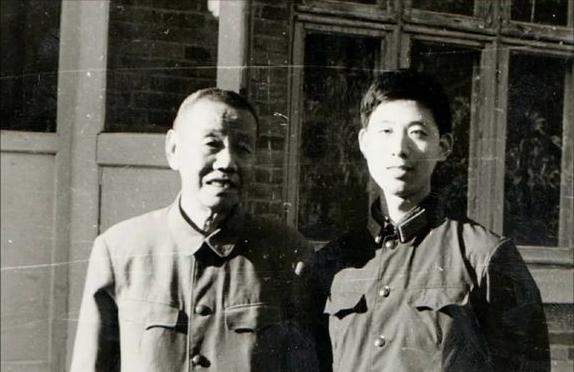The 6th Column of the Central Plains Field Army is a strong brigade that is good at fighting hard and vicious battles, and the fact that the troops have such a strong combat effectiveness has a lot to do with the character of commander Wang Jinshan and political commissar Du Yide, who dare to fight and dare to fight.

The formation and initial development of the 6 columns are inseparable from another general, who is Wang Hongkun.
Wang Hongkun was born in the Red Fourth Front, served as a military commander, deputy chief of staff of the front, and a commander who could fight.
After the outbreak of the War of Resistance Against Japanese Aggression, he stayed in the rear and took the opportunity to study in Yan'an for a period of time so that he could improve his thinking.
In 1939, the study of the party school was not over, and the central government sent a group of senior cadres to work on the front line, and Wang Hongkun was also included. He went to work in Southern Hebei and served as deputy commander of the Southern Hebei Military Region.
After the end of the War of Resistance Against Japanese Aggression, he served as the deputy commander of the Jinji-Hebei Luyu Military Region and assisted Liu Bocheng in his work. The troops prepared for a big battle and blocked the field army, the 1st column, 2nd column, 3rd column, and 4th column were established, and Liu Deng asked Wang Hongkun to form 6 columns.
The predecessors of the 6th Column were the Weijie Detachment, the QinXiang Detachment, and the units directly under the 6th Sub-district of the Taihang Military Region, all of which were units established during the War of Resistance Against Japanese Aggression, with poor weapons and no combat experience in large corps. Such a brand-new unit fights mobile warfare and large corps combat, and its combat effectiveness is indeed average.
However, the superiors equipped this unit with generals who can fight hard battles, and in addition to Wang Hongkun concurrently serving as commander, the deputy commanders were Wang Jinshan and Wei Jie, who also served as brigade commanders.
After the formation of the troops, some small battles were fought, and at that time there was no full-scale civil war.
Wang Hongkun is a very busy person, not only responsible for the work of the 6 columns, but also responsible for the work of the military region.
In Wang Hongkun's view, Wang Jinshan has strong military ability, and it is very suitable to serve as a commander, so he can change to political commissar himself, so that he can take into account both aspects of work. Therefore, he expressed his opinion to Chief Liu Deng, and Chief Liu Deng did not express his position when he saw it.
Not long after, a conclusion was reached on the adjustment of the 6-column leadership group, and Du Yide, commander of the Ji'nan Military Region, was transferred to the political commissar of the 6th Column.
Why didn't Chief Liu Deng listen to Wang Hongkun's advice?
From the overall perspective, Wang Hongkun is right not to concurrently hold the 6 vertical work.
Before the outbreak of a full-scale civil war, the Kuomintang army constantly invaded the Liberated Areas and provoked war. The Jinji-Hebei Luyu Field Army was established and became a mobile and flexible main force, Liu Deng wanted to lead his troops to fight a big battle, and someone in the rear needed to be responsible.
At that time, the deputy commanders of the Jinji-Hebei Luyu Military Region were Teng Daiyuan and Wang Hongkun, and the deputy political commissars were Bo Yibo and Zhang Jichun.
After Liu Deng led his troops in mobile operations, the military region needed someone to be responsible for military work. Teng Daiyuan is a political worker and staff officer, and compared with Wang Hongkun, a front-line commander, the two have complementary advantages.
This decision is very correct, after all, the military region belongs to the rear, Liu Deng fights far away from the rear, and the military strength in the rear is weak, and it is necessary to strengthen leadership.
In the following liberation war, Wang Hongkun led the troops to cooperate with the main force and rarely played the leading role.